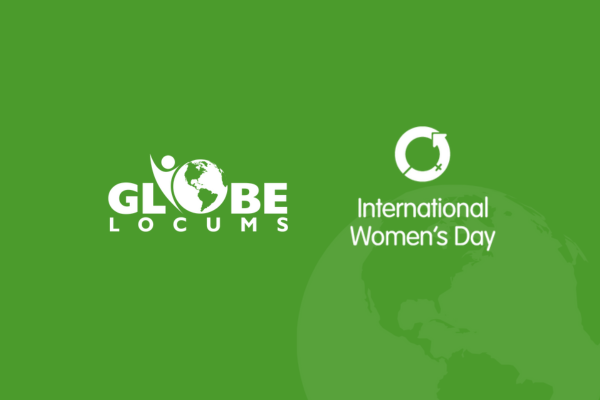5 Questions You Should Ask in Your Recruitment Consultant Interview

5 Questions You Should Ask in Your Recruitment Consultant Interview
Becoming a recruitment consultant is an incredibly rewarding career that lets you help others find their dream jobs. The path towards this career is quite straightforward, but it really helps to go into your recruitment consultant interview prepared. That means understanding the role, what’s expected of you and what you can bring to the job. One of the best ways to showcase your passion and abilities during your interview - while also learning more about the employer - is by asking interviewers the right questions about the role. So, in this article, we’ll learn 5 questions you should ask in your recruitment consultant interview.
1. Can You Describe the Company's Culture?
An often overlooked part of preparing for a recruitment consultant interview is gauging the company culture. The values and ethos of a company can significantly affect your work satisfaction and professional growth, so it helps to know where your prospective employer lies here. This question can uncover the values that drive the company, the work environment, and how employees interact with each other.
Understanding the company culture is important because it helps you see if your values align with those of the company. A culture that promotes work-life balance, continuous learning, and employee wellness might be appealing if those are priorities for you. Conversely, a high-pressure, competitive environment might be more suited to someone thriving under pressure and eager to fast-track their career.
2. What Does Success Look Like in This Position and How is it Rewarded?
If you’re wanting to keep developing your recruitment consultant career, learning about career development within the company is key. Knowing how a company measures success for a recruitment consultant can help you understand what will be expected of you and what you will need to do in order to advance. This question also touches on Key Performance Indicators (KPIs) that will likely guide your work.
This question will give you insight into the company's expectations and how they align with your own professional standards and goals. Understanding these expectations can help you decide if you are in a position to meet or exceed them and whether the role will offer the satisfaction and recognition you are looking for.
And with this hard work, you’ll want the apporpiate recognition and rewards. Asking how the company recognises and rewards sales performance can help you understand the incentive structure and motivational factors within the company. Whether through bonuses, commissions, incentives, or other recognition programs, knowing how your efforts will be acknowledged and rewarded can be a significant factor in your career satisfaction and motivation.
3. What are the Biggest Challenges Facing the Team Right Now?
Another great question to ask at your interview is one that peers into the current problems faced by your prospective team. Asking about their current challenges shows your interest in the realities of the position while also helping you gauge the current state of the company's recruitment strategies and processes.
Knowing the hurdles faced by the team can help you assess whether you have the skills and willingness to help overcome them. What’s more, the response might give you clues about areas where the company is striving to improve, offering a glimpse into possible future projects or focus areas.
4. What Opportunities for Professional Development and Growth Does the Company Offer?
As touched on above, the role of recruitment consultant is often one rung on the career ladder. So, if you’re looking to specialise or advance in recruitment, it helps to know that your prospective employer can give you room to grow. This question helps you understand the potential for professional development and upward mobility within the organisation.
Asking about professional development opportunities can reveal how the company invests in its employees. Companies that provide training programs, mentorship, and promotions from within typically value employee development and retention. Knowing this can help you decide if the company is the right place for you to grow your career long-term.
Finding out about the pathways for growth within the team (and wider company) can provide clarity on the potential trajectory of your career. Understanding the criteria for promotion, the skills or milestones required, and the typical career paths of successful sales professionals in the organisation can help you set realistic goals and plan your long-term career development strategy.
5. Can you describe the typical career progression for someone in this role?
This question shows your ambition and interest in long-term career planning within the company. It helps you understand the growth opportunities and what achievements are necessary to advance. This question can also reveal how the company nurtures talent and whether promotions are based on merit or seniority.
Tips for a Successful Recruitment Consultant Interview
Asking the right questions at your recruitment consultant interview will give you lots of useful insight and will let employers know that you’re serious about the job. However, there are plenty of other things that you can do to improve your chances of making your interview a success. So, to help you prepare for the big day, let’s go over a few tips to help:
Research Thoroughly
Before your interview, invest time in researching the company and its industry. Understand their services, clients, and the markets they operate in. Knowledge of recent news or trends in the recruitment field, especially those impacting the company, will show your initiative and genuine interest in the role.
Showcase Relevant Skills and Experience
Highlight experiences that directly relate to the key responsibilities of a recruitment consultant. Discuss specific situations where you successfully identified, attracted, and hired top talent. Mention any challenges you faced in the recruitment processes and how you overcame them, emphasising skills in negotiation, communication, and problem-solving.
Prepare to Discuss Industry Methods and Trends
Be ready to discuss current recruitment strategies and trends, such as the use of artificial intelligence in sourcing candidates or the importance of employer branding. Demonstrating your knowledge of these topics will help establish you as a well-informed candidate who is up-to-date with industry standards and practices.
Practice Common Interview Questions
Prepare for common interview questions specific to recruitment consulting, such as how to handle difficult hiring managers or how you would improve a client's hiring process. Practice your responses to ensure they are clear, concise, and assertive, reflecting confidence and professionalism.
Find Your New Career as a Recruitment Consultant
Asking the right questions during a recruitment consultant interview is just as important as answering the questions posed to you. The right questions can demonstrate your proactive engagement and interest in the role and also equip you with the information needed to make informed decisions about your career path. Remember, an interview is a two-way street; it's about finding the right fit for both you and the employer.
If you’re looking to find the perfect platform to develop your recruitment consultancy career, our team at Globe Locums would love to hear from you. Take a look at our latest vacancies or get in touch with us if you have any questions.

Join our Team
Take the first step towards a rewarding career in recruitment.





